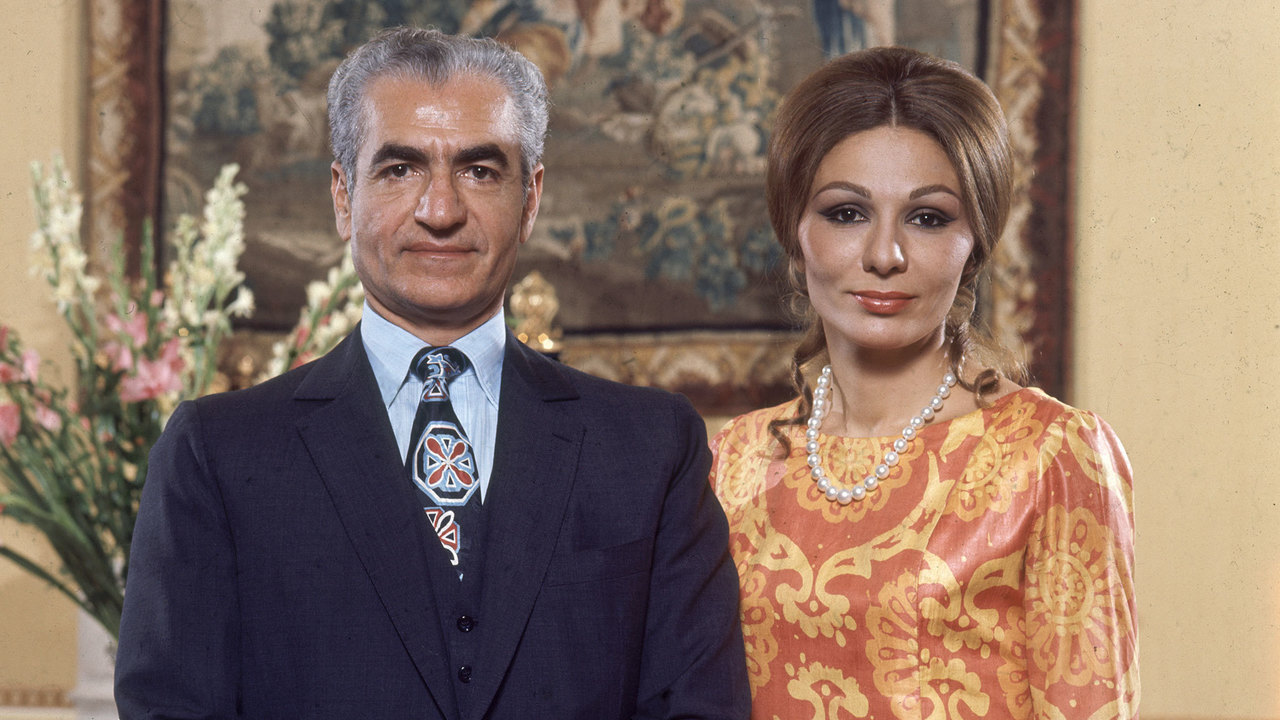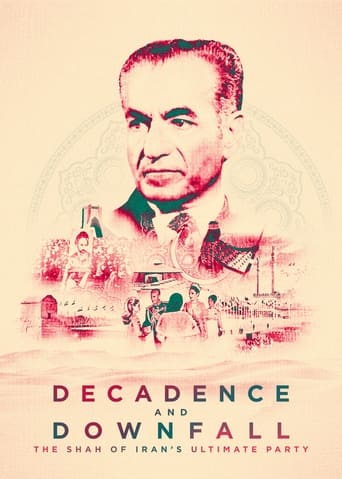

Learning about the Iran royal family after seeing Princess Soraya in the marvellous I tre volti,I was thrilled to read an Empire review in 2016 on a doc about the last Shah of Iran. Trying to find the movie,I was disappointed to see no sign of it on DVD or even on streaming services. Checking the docs page on BBC iPlayer today,I was thrilled to find the doc! Which led to me finally going to the Shah's final party.The outline of the doc:Propped-up the British and the US via a coup to remove the Prime Minister,Shah Mohammad Reza Pahlavi declares himself the "King of Kings." Wanting to confirm his status and to make the country "Westernised" Pahlavi stages a lavish party,where every world leader attends. Whilst the Shah treats the guests to luxury, a revolution begins View on the doc:Locating an incredible amount of archive footage, debuting director Hassan Amini blends interviews with surviving people who worked/were guests at the party,with lavish footage which includes the feature film Pahlavi got made on the party,narrated by Orson Welles. Stripping away the party footage,Amini also unearths footage of the poor in Iran society, who were disguised by the Shah behaving like he is on another planet to them. Giving the doc a sliver of humour,Amini cleverly uses the score to give the party scenes a Camelot feeling of Fantasy. Treating the event in a matter of fact manner,Amini brilliantly reveals in archive interviews with the Shah how his attempt to "westernise" Iran, (even saying how Iran now has secret police like the west!) completely ignored the view of the religious community and the needs of the poorest in the country,as the Shah throws his last party.
... View MoreIn 1971 the Shah of Iran, who has been in power for three decades, threw an extravagant party to celebrate 2500 years of the Persian Empire. No expense was spared in creating an environment fit for kings, queens, and statespeople who flocked from far and wide for the occasion. A vast tented city was created in the middle of the desert around Shiraz and the ancient site of Persepolis, with grass, trees, and even birds imported from France. Chefs were brought in to create culinary delicacies complemented by the best wines from France (once again). The junket subsequently moved from Shiraz to Tehran, where the guests were treated to a colorful pageant with a cast of thousands and sets and costumes to match. As a celebration of Iran's illustrious history the entire event could not be bettered.The only snag about the whole event was that, far from being patriotic, it actually revealed the Shah's excessive hubris. The self- proclaimed King of Kings, he practiced a reign of terror wherein dissidents were imprisoned and ruthlessly tortured, and any opposition was silenced. Although proclaiming himself an advocate of "modernization" and "westernization," bringing in the latest technologies and expertise to bring Iran up to the social and cultural levels characteristic of the West, he was nothing more than a despot concerned solely with his own self-image.Hassan Amini's film prompts us to reflect critically on precisely what "westernization" signifies, and how (or whether) it can be successfully introduced into non-western contexts. Many of the Shah's critics claimed - rightly, as it turned out - that his reforms were un- Islamic insofar that they took little or no account of the people's religious sensibilities. Nor did the Shah pay much attention to the often pitiful lives led by the majority of his people. To become "westernized" was nothing more than a show designed to attract investment and thereby increase the Shah's personal wealth still further. Hence it was hardly surprising that opposition to his reign increased, culminating in the revolution of 1979, when he was overthrown and replaced as leader by Ayatollah Khomeini.History - at least from the western perspective - has taught us to believe that the Khomeini regime was a "fundamentalist" one. This might be certainly true, but DECADENCE AND DOWNFALL suggests that, for many Iranians at least, it represented a more desirable alternative to the Shah's absolutist role, where money was spent mostly on events designed to gratify the ruler at the expense of his people.
... View MoreIran's last Shah was a military dictator, who sought to claim authority by invoking past Iranian emperors. Out of touch with his people (whose interests he probably quite genuinely believed he was serving), in 1971 he held a lavish party attended by dozens of heads of state, to mark the preposterous event of the 2500-year anniversary of the rule of Cyrus the Great. Less than a decade later, he was out of power and a new, Islamic government held sway in his country. This effective film simply shows us how the great celebration was arranged; and how the Shah's fantasy vision of himself jarred with the experience of the people living under his sometimes brutal rule. It's well worth watching, especially when his widow offers a mea culpa so astonishing - that she and her husband did not realise they were living in a Muslim country - that it's amazing they survived in power for as long as they did, police state notwithstanding. Here's to hoping Iran can find a better future in the 21st century than it had in the last one.
... View More